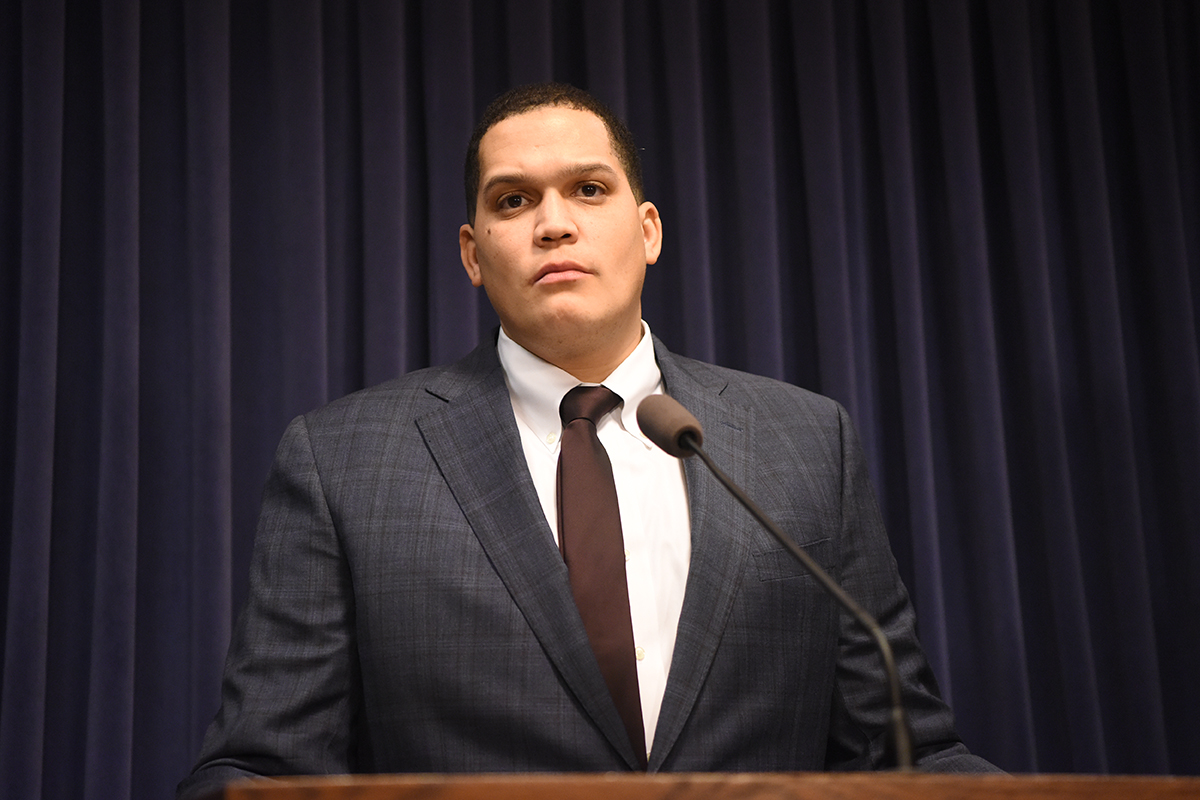Name change measure passes the Senate
- Details
- Category: Press Releases
SPRINGFIELD – State Senator Robert Peters supported a measure to allow justice-impacted individuals to legally change their names, which passed out of the Senate Tuesday.
“There are a million reasons why someone could have been impacted by the justice system, and sometimes you find their only crime was trying to survive,” said Peters (D-Chicago). “Sometimes, people need a new identity for their safety, and for their ability to truly lead a good life. This legislation would be an aid in those scenarios.”
Peters on assault weapons ban: We cannot wait any longer
- Details
- Category: Press Releases

“Too many people have died unnecessarily at the hands of someone with a firearm,” said Peters (D-Chicago). “We have seen this time and time again, and the least we can do is regulate the possession of the weapons of choice of mass shooters.”
Peters bill to grant Chicago principals the right to unionize passes Senate
- Details
- Category: Press Releases
SPRINGFIELD – State Senator Robert Peters is leading a measure that would allow principals and assistant principals in the city of Chicago to collectively bargain.
“For far too long, Chicago principals have not had a say in the work environment and procedures that affect them, as well as their students,” said Peters (D-Chicago). “Chicago principals have a voice when it comes to their working conditions, and their voice deserves to be heard and valued.”
Peters responds to Kankakee court’s opinion on pretrial release
- Details
- Category: Press Releases
More Articles …
Page 46 of 96







